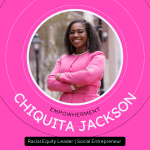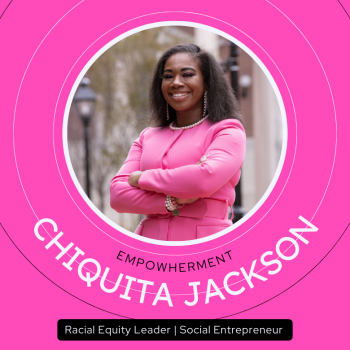In a world where the dream of affordable housing seems increasingly out of reach, particularly in majority-minority communities, understanding and mastering the art of financial literacy becomes more than just a skill—it’s a necessity. For many low-income BIPOC residents, the escalating housing crisis presents not just a challenge, but a barrier to achieving a stable, secure lifestyle. Yet, amidst these challenges, there lies a beacon of hope: the power of informed, disciplined financial management.
Breaking the Cycle: From Witnessing to Learning
As a child, I was an observant witness to the non-healthy relationships with money that encircled me. This early exposure was a double-edged sword: it presented a picture of what not to do, but also instilled a deep realization of the importance of financial respect and security. I learned a crucial lesson – if you don’t appreciate money, it won’t work for you.
The Turning Point: Gaining Financial Control
Recognizing the need for change, I took a proactive step in high school – I opened a savings account with the guidance of my grandmother. This act wasn’t just about saving money; it was a commitment to unlearn unhealthy financial habits and replace them with disciplined, mindful money management. It marked the beginning of my journey to financial empowerment, helping me resist the impulsive urges fuelled by rampant consumerism.
The Role of Community Behaviors in Housing Affordability
One of the overlooked aspects of the housing crisis in minority-majority communities is the impact of community behaviors. Negative financial habits and a lack of awareness about money management often ripple through communities, inadvertently contributing to the housing affordability issue. By changing these behaviors and increasing financial literacy, residents can better navigate the complex housing market, making affordable housing more accessible.
Empowering Strategies: Money Management and Investment
The cornerstone of financial empowerment lies in effective money management and smart investment choices. Here are two powerful tools:
- Roth IRA Over Traditional IRA: For those practicing money management and seeking avenues to grow their funds, the Roth IRA offers a more advantageous route compared to the traditional IRA. Its unique tax benefits and withdrawal flexibility make it a smart choice for long-term financial planning.
- Investing in Life Insurance: Your life’s value is immeasurable, and protecting it should be a priority. Investing in life insurance is not just about safeguarding your future; it’s a testament to your worth and a crucial step in holistic financial planning.
Overcoming the Social Media Marketplace Trap
In today’s digital age, social media platforms have evolved into addictive marketplaces, enticing users with endless consumerist temptations. This environment can derail one’s financial discipline, pushing towards needless spending. The key is to cultivate an awareness of these traps and prioritize financial literacy over fleeting online trends.
Conclusion: The Journey to Financial Wellness
The path to affordable housing and financial security in majority-minority communities is complex, but not insurmountable. By fostering financial literacy, practicing disciplined money management, and making informed investment choices, individuals can break free from the cycle of economic instability. Remember, the journey to financial wellness starts with a single, mindful step.
Take that step today, and pave your way to a more secure, empowered future.
















